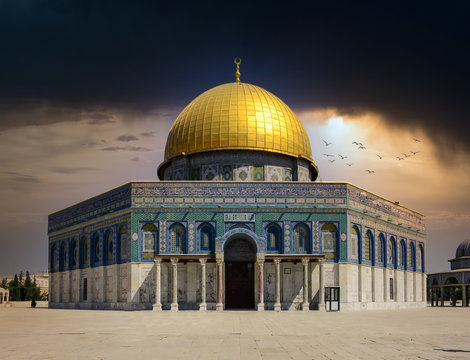SALAHUDDIN
Ayubi


In an age of war and turmoil, Salahuddin Ayyubi rose not just as a warrior, but as a light of honor, faith, and humanity.
Born of Kurdish roots, he did not seek glory for himself — but stood for the unity of the Ummah and the sanctity of Al-Quds.
He wept when he entered Jerusalem, not as a conqueror, but as a servant of peace.
He fed the hungry, healed the wounded — friend or foe — and forgave when others sought revenge.
In a world torn by bloodshed, Salahuddin carried no hatred in his heart.
His sword was sharp, but his soul was soft — forged in the fire of devotion, not ambition.
He knew that true victory was not in the crushing of enemies, but in the triumph of justice and mercy.
He liberated Al-Quds, not to raise flags, but to raise the fallen.
He gave the Christians safe passage, preserved their churches, and proved to the world that a Muslim ruler could be both powerful and profoundly humane.
Salahuddin’s legacy is not carved in stone — it lives in the hearts of those who believe in righteousness over revenge,
in unity over division, in peace over pride.
He was a warrior — yes — but far more, he was a shepherd of souls, a protector of the sacred, and a symbol of what it truly means to lead with faith.


After becoming vizier, Salahuddin defended Egypt from Crusader attacks and internal revolts, securing its independence from the Fatimid Caliphate.

To unify Muslim lands, Salahuddin marched through Syria, capturing Damascus, Aleppo, and Mosul — forming a strong front against the Crusaders.

Though defeated by Baldwin IV of Jerusalem, Salahuddin survived and learned from the loss — preparing for future victories through strategic patience.
Salahuddin laid siege to the Crusader stronghold of Kerak. He famously spared a wedding party inside the castle, showing mercy even in war.

In a stunning victory, Salahuddin crushed the Crusader army near Tiberias, capturing King Guy and reclaiming key cities in the Holy Land.

After Hattin, he surrounded Jerusalem. The city surrendered peacefully. Salahuddin entered with humility, sparing civilians and holy sites.
Salahuddin faced off against Richard the Lionheart during the Third Crusade. Battles like Arsuf tested both leaders' tactics and honor.

After long battles, Salahuddin agreed to a truce with Richard the Lionheart in 1192. The treaty allowed Muslims to keep Jerusalem and ensured safe passage for Christian pilgrims.

“How can I smile when the Al-Aqsa Mosque is under the control of the Crusaders?”

“We have not come to kill but to give life.”

“"If you want to destroy any nation without war, make adultery or nudity common in the young generation.”

“When Allah gives me victory, it is not for my sword or strength, but because of His mercy.”

“My goal is Jerusalem, not bloodshed.”

“I am a servant of the Qur’an, and as long as I live, I will fight for it.”